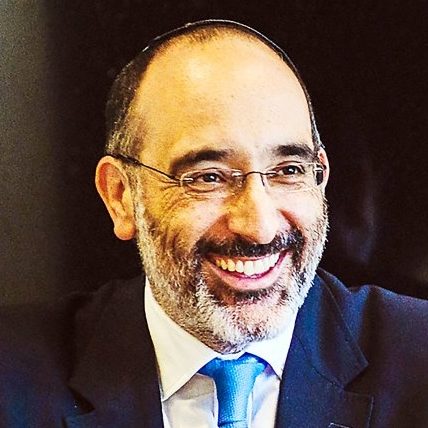Religion
Let’s start talking about Pesach

For the past few weeks, my family and I have been doing something really special. We’ve been getting together every Sunday night, sitting around the table, and going through the Pesach Haggadah.
It’s just me, Gina, and our children – our eldest, Mordi, his wife Avigayil, and Levi, Shayna, and youngest Azi. We have supper together, and then we get stuck into the Haggadah, discussing, debating, sharing as a family, covering everything from the four sons, the four questions and the ten plagues, to matzah, maror, and the four cups of wine.
It has been a truly memorable experience. We started this family tradition a few months ago, setting aside the Sunday night slot to connect as a family and share Torah ideas. It’s an open forum, a space for every member of the family to express their thoughts, ideas, and opinions. We’ve covered the Rambam’s 13 Principles of Faith and the weekly parsha, and now, most recently, the Haggadah.
Going through the Haggadah, which tells the story of the Jewish people and goes to the very heart of who we are as Jews, has been particularly special. We’ve fine-tuned our understanding of the story, and gained so many new insights and ideas. Just as importantly, we’ve grown closer as a family, and feel more connected to each other and Hashem. Now, as we head towards Pesach, we all feel that this is going to be a dramatically different seder experience. Our mindset is different.
The Pesach seder is perhaps the formative Jewish experience. The seders we had as kids seem to stay with us. Even as we grow older, we recollect them fondly and vividly. It’s so much more than a ceremony, a procession of rituals, it’s the rich soil in which our families and our very Jewish identity are formed.
Of course, as we grow older, there’s the temptation, given how familiar the story is, to slip into autopilot on seder night. But if we prepare, we can avoid this and enter the seder charged with inspiration and filled with rich new perspectives. In doing so, we can transform it into an incredibly powerful spiritual and emotional experience that changes us, that truly frees us from our tired routines and habits and brings us closer to one another, to G-d, and to our true selves. A rebirth in the deepest sense.
That’s why I would like to call on all of us to start these meaningful family conversations in preparation for Pesach, to discuss the ideas and themes and get a deeper understanding of the seder itself. Of course, we need to prepare our homes – cleaning and cooking are incredibly important because they help us to fulfil all the mitzvot of this special chag and ensure we have a proper, kosher Pesach. But the seder, too, needs preparation, and the more we prepare for it, the greater the experience is going to be.
There’s something that can help you get the process started. My family and I were so excited and inspired by our Sunday night learning sessions, we decided to record our Haggadah discussions. We’ve turned these recordings into a special Pesach series, called The Goldstein Family Podcast, which you can access via my website or wherever you get your podcasts. The sessions have been cut and edited into eight episodes ranging from 10 to 30 minutes each to make them as accessible as possible.
There’s not much time left before Pesach, but I would like to encourage you to devote some time to preparing for the seder, and our podcast can be a good place to start. Even just a couple of hours can make all the difference to your seder.
Especially at this time, after a year of being battered by a pandemic, we need the healing, the meaning, and the deep inspiration of the seder more than ever – the message of faith in Hashem, connection to generations past, the sense of rootedness it gives us in an uncertain world.
Let’s take this opportunity to prepare so that we can connect with the ancient words of the Haggadah – with the great origin story of our people – in ways we’ve never done before.
Gina and I wish you all a chag kasher v’same’ach – a beautiful Pesach – and deeply meaningful, enriching seders.
